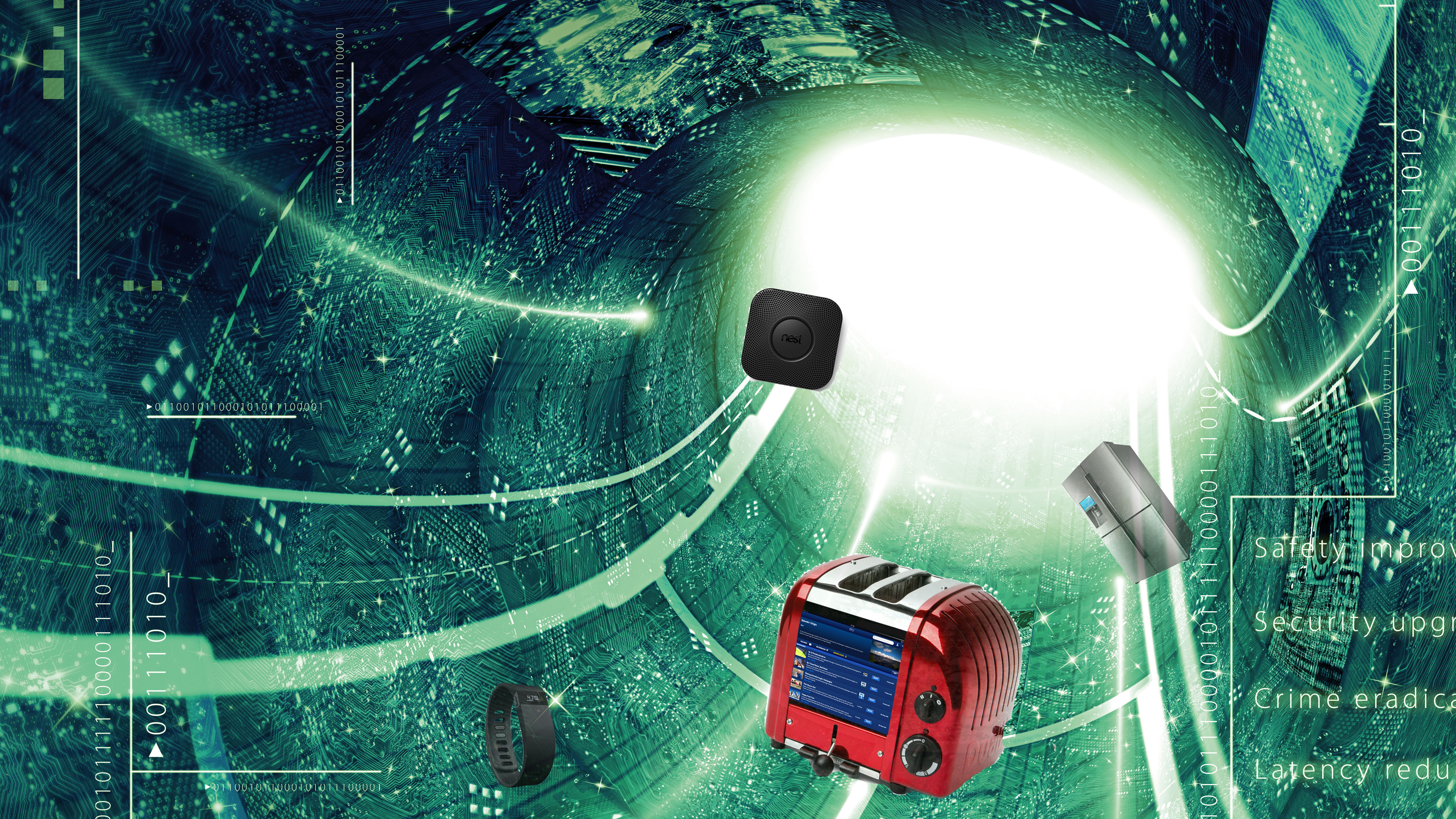How the internet of things will change the way we do business
Aruba Networks Workplace Futures report: Part 4

As cloud computing is changing the physical nature of our work spaces, the way we connect to them, and the number of objects we connect to them, are in turn changing how we will work and redefining what we mean by work in the future.
In January 2014, Samsung's president for North America Gregory Lee declared this to be the 'year of the Internet of Things'. His prediction is echoed by findings from IDC, which state that by 2015, 37% of the world's labour force, or 1.3bn people, will identify as mobile workers. The company also predicts that 1 trillion networked devices will be connected worldwide by 2025.
The Age of Everyware, a term coined by urbanist Adam Greenfield in his book Everyware: The Dawning Age of Ubiquitous Computing, will mean that anything electronic will be linked to the web.
As a result, a range of predictive devices will be able to communicate with one another to make our working lives increasingly seamless.
Internet of things moves towards ubiquity
"I'm imagining I walk out of my front door with my device. My device locks the door behind me. It starts my car. It pays for my coffee at Starbucks. It knows that when I get in my car and I say I'm going to Starbucks, it has my order waiting for me when I get there," says Mani Zarrehparvar, president of mobility technology firm Visage Mobile.
"It recognises that I'm late for a meeting and changes my meeting because it knows – from my location – that I'm not going to be at the office in time for my video conference meeting so it changes it to a voice call."
Interior designers Control Group created a phygital (digital and physical) office space for asset management company Brookfield in Manhattan that offers a glimpse of what work will be like in the Age of Everyware.
Are you a pro? Subscribe to our newsletter
Sign up to the TechRadar Pro newsletter to get all the top news, opinion, features and guidance your business needs to succeed!
The digital infrastructure includes a 50-feet screen that shows key words associated with Control Group such as 'global reach'. As visitors read them, Kinect-like technology cues the smartscreen to show more visuals and elaborate on the text. Intuitive meeting rooms also allow conference calls and Powerpoint presentations to be started with the touch of a button.
A shift in the mode of business
"Work, and the functions of work, will therefore become more sentient, anticipatory and predictive as the Internet of Things anticipates our movements, objectives and work patterns," adds Sanderson.
As The Future Laboratory predicted at the turn of the decade, a new rebellious spirit is taking hold and creating counter-intuitive solutions to our biggest problems. These unexpected, collaborative and often frugal agents of change are altering the ways in which we value work.
"In the future, people will increasingly barter, exchange, borrow or rent rather than want to own products. We are moving to a time when access will be more important than ownership," says Lauren Anderson, chief knowledge officer at Collaborative Lab.
Consider brands such as room rental business AirBnb, vehicle rental service Zipcar, car-sharing site Lyft and possession rental site Open Shed. All are service- rather than product-based business models, and operate as platforms, marketplaces and forums rather than retailers.
'Fractional ownership'
In this world of 'fractional ownership', collaborative consumption model businesses are the facilitators, enabling you to access other people's products and possessions, for which they take a percentage of the hire fee. The model is working. Research firm Opinium estimates that the sharing economy is worth £310bn ($520bn, €383bn) worldwide.
Creating collaborative consumption business initiatives is enabling people to pursue more flexible working patterns, according to Airbnb, which reports that 42% of Airbnb hosts are self-employed, freelancers or part-time workers, many of whom say Airbnb helped them pursue these careers.
And many corporate brands are emulating this model, using the internet and the rise of barter culture, fractional ownership and skills-exchange networks to re-invent the traditional notion of the global corporation.